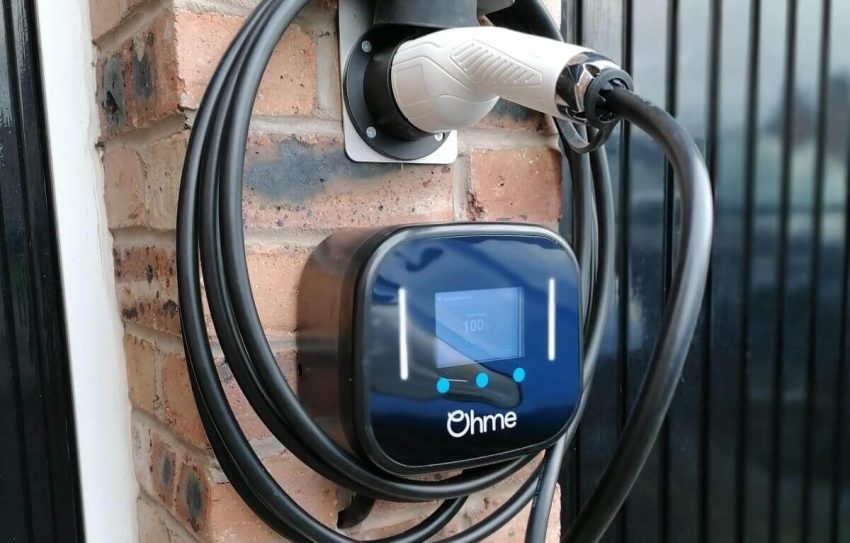
Last updated on January 20th, 2024 at 12:49 pm
Charge your electric car with the Joint EVC38
Today, electric vehicles (EVs) have become the preferred choice of environmentally conscious individuals. As the number of EV owners continues to rise, reliable home charging solutions are becoming increasingly important. Ensuring a seamless and efficient charging experience requires careful selection of the right home EV charger and adherence to proper installation procedures. In this comprehensive guide on how to purchase and properly install a home EV charger, we hope this guide will help you make the right choice and set up the perfect EV charging station at home.
Understanding your EV and charging needs
Before you start looking for the ideal home EV charger, it’s crucial to have a grasp of your EV’s unique charging needs. Home EV chargers fall into two main categories: level 1 EV chargers and level 2 EV chargers.
Level 1 EV Chargers:
Level 1 EV chargers are an easy and basic home charging device for most electric and plug-in hybrid vehicles. Almost all electric vehicle manufacturers offer a standard Level 1 charger, which is usually included with the vehicle. The main advantage of a Level 1 charger is its simple installation process and ease of home use, which enables the charging of an electric vehicle by connecting to a standard home electrical outlet (usually 120 volts or 230 volts). Charging speeds are slower, typically in the range of 3 to 5 miles per hour, but the main advantage of the Level 1 charger is its simple installation process and ease of home use. Suitable for daily commuting and night-time charging for a normal day’s car use, Level 1 EV chargers are an affordable option for those who don’t drive many miles per day and don’t need a quick charge.
Level 2 Home Electric Vehicle Charger:
Level 2 EV chargers are advanced charging devices with high power and relatively fast charging speeds, typically used in home and commercial environments. Level 2 EV chargers typically range from 3 to 19.2 kW to meet the fast charging needs of electric vehicle owners.
Installation may require a specialist electrical engineer as Level 2 chargers need to be connected to a high-voltage supply and may require a dedicated EV charging unit in the home environment.
Level 2 EV chargers are widely used in homes, offices, commercial car parks, and public charging stations. Some EV charger manufacturers have also launched smart home EV chargers, such as the JointEVC27, which supports smart charging, plug-and-play, dynamic load balancing, reservation, and other features to provide users with more flexible and convenient charging options.
Check your home’s power capacity
With a clear understanding of your EV charging needs, the next key step is to assess your home’s power capacity. The foundation of a safe and reliable home charging solution lies in a strong electrical infrastructure. Therefore, seeking the expertise of a qualified electrician is necessary to confirm that your electrical panel can support the additional load introduced by an EV charger, and to help fully assess your home’s electrical capacity.
Choosing the Right Home EV Charger
After determining your charging needs, you will be in a better position to choose a suitable home EV charger. You can explore your preferred home EV charger online or contact an EV charger dealer directly to determine the ideal charging speed and connector type for your specific EV model.
Factors such as charging speed, brand reputation, smart features, and warranty all play a role in the decision-making process. Choosing a trusted EV charger company is a smart choice. As a professional EV charger manufacturer, Joint provides tailor-made home EV charging solutions to help you buy the best Level 2 EV charger. Joint provides ODM and OEM services and is committed to combining leading design concepts with scenario-based application requirements and working with partners to achieve sustainable development.
Installation Location Considerations
Checking local regulations and ensuring compliance with safety standards are crucial steps before finalizing an installation location. In addition, choosing the right installation location should not only facilitate compliance but also ease of maintenance.
For home users, the most common installation location is in the home garage or driveway. Such a location is usually more convenient for charging at night or while parked. At the same time, sufficient space should be maintained around the EV charging equipment to ensure that the equipment dissipates heat and prevents overheating.
Check for incentives
Many local authorities and utility companies recognize the importance of encouraging the installation of EV chargers in the home through incentives or rebates to motivate homeowners to embrace sustainable home EV charging solutions. Therefore, checking for available incentives in your area can significantly reduce the overall cost of implementing a home charging solution.
Conclusion.
Purchasing and installing a home EV charger requires careful consideration of various factors. Understanding your EV charging needs, assessing your home’s electrical capacity, choosing the right charger, checking incentives, and considering the installation location before making a purchase will help you choose the most appropriate EV charger and install your EV charger perfectly.
Tech World Times (TWT), a global collective focusing on the latest tech news and trends in blockchain, Fintech, Development & Testing, AI and Startups. If you are looking for the guest post then contact at techworldtimes@gmail.com

